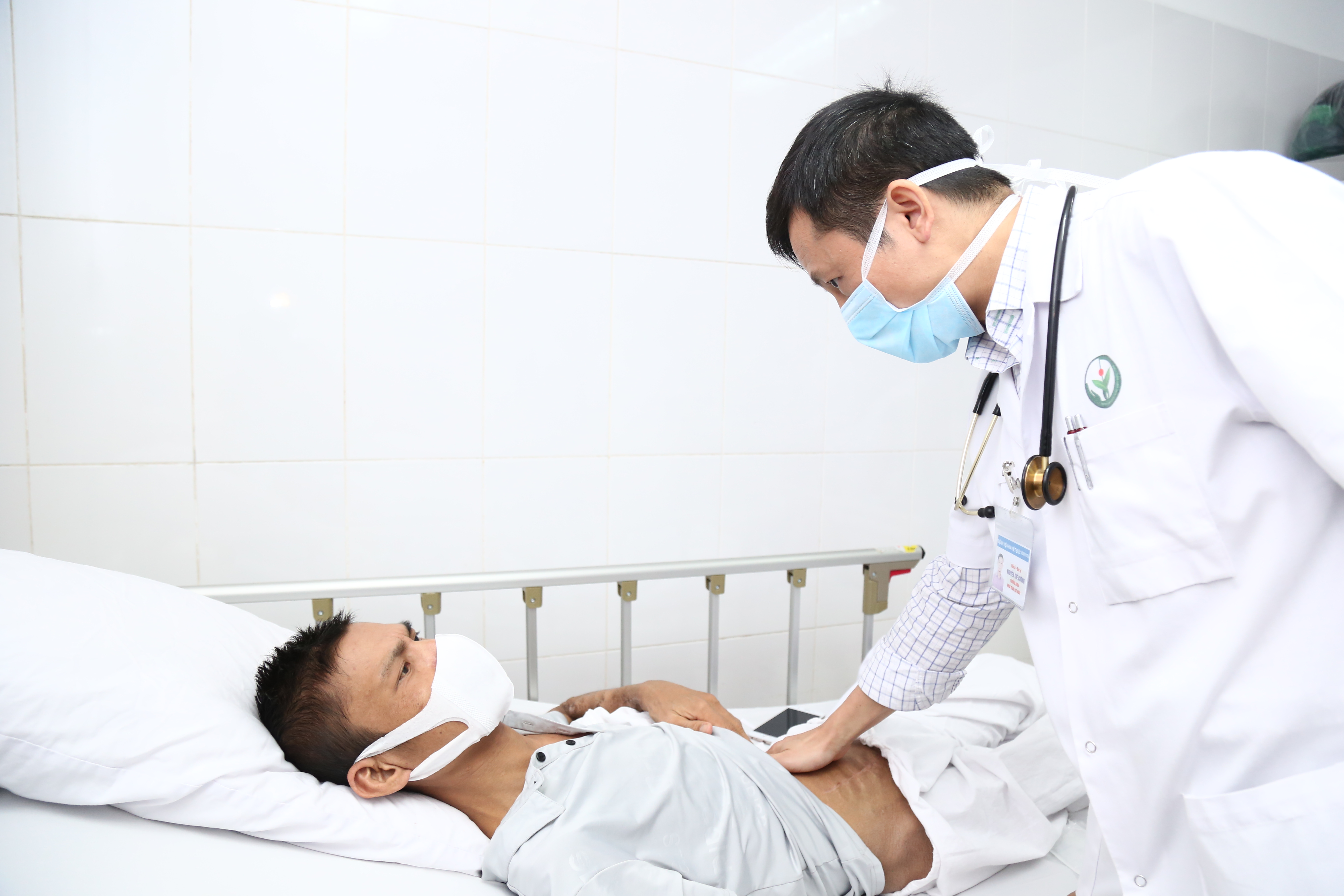Edema, minor urination and weight gain: Signs of primary nephrotic syndrome
24/02/2020 07:31
Nephrotic syndrome is a clinical and biochemical syndrome that occurs when there is damage to the glomeruli caused by a variety of conditions, characterized by edema, high proteinuria, decreased hypoproteinemia, dyslipidemia and may urinate fat. Treatment of nephrotic syndrome is usually not completely cured due to repeated relapses, causing serious complications such as infections, embolism and worsening kidney damage.
Dr. Nguyen The Cuong – PhD, Chief of Kidney Diseases and Hemodialysis, Viet Duc University Hospital said: normally, urine has no or very little protein due to the mechanism of protein reabsorption in the kidney, but for people with primary nephrotic syndrome, the presence of protein in the urine will be greater than 3.5g / 24 hours. Increased urine protein can cause urine to become cloudy, such as foaming, some patients will urinate less and gain more weight than usual. In addition, leg edema is one of the recognizable manifestations of nephrotic syndrome.

Dr. Nguyen The Cuong – PhD, Chief of Kidney Diseases and Hemodialysis, Viet Duc University Hospital examines patient.
Patients diagnosed with primary nephrotic syndrome when having the following factors: proteinemia drops below 60 g / liter, blood albumin drops below 30 g / liter: Hypercholesterolemia ≥ 6.5 mmol / liter: Has bipolar fat and head appear in urine fat: protein in urine above 3.5 g / 24 hours.
Dr. Nguyen The Cuong – PhD adds: Nephrotic syndrome is essentially a chronic, sudden course of episodes. Treatment will help to completely relieve the disease. However, due to the nature of the disease often recurs, therefore we need a long-term follow-up treatment for many years and patients should follow the prescribed treatment regimen. The goal of treatment is to reduce symptoms, prevent complications, extend the duration of recovery, and slow down the process of kidney damage.
In the treatment of primary nephrotic syndrome, patients should pay attention to bland eating, taking diuretics as directed by doctor. Protein replenishment for the body by increasing protein supplements in food, taking corticosteroids, diuretics, reducing blood fat as directed by doctor.
In the event that patient does not respond, or has side effects of medicines cannot be predicted, patient should be assigned a kidney biopsy to guide treatment according to pathological lesions. Other immunosuppressant medicines such as: Cyclophosphamide, Chlorambucil, Azathioprine, Cyclosporine A, Mycophenolate mofetil.
In order to help people better understand how to prevent, care and treat kidney diseases, on February 29th 2020, Viet Duc University Hospital will hold a free consultation program on kidney diseases together with leading experts: Kidney Failure, Polycystic Kidney, Chronic Glomerulonephritis, Urinary Infections … Participating in the program, people also made some free indications: Abdominal ultrasound, general test urinalysis, blood biochemical test.
Venue: Clinic No. 14, Level 2, C4 building, Services on demand area, Viet Duc University Hospital. Residents can register directly via the customer service hotline 19001902.












